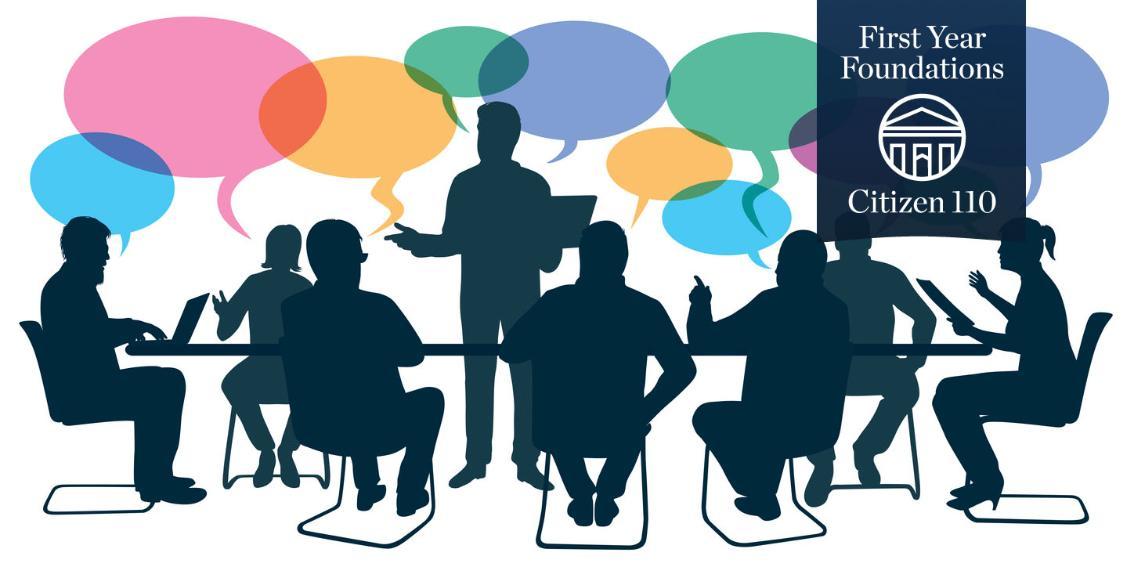

Getting into arguments is generally frowned upon, but it’s a requirement for students in Dr. Adam Blincoe’s Citizen 110 course, Choosing Well, Acting Right, Being Good.
Blincoe, a scholar of philosophy and ethics, says the main goal of the course is to “get students thinking about ethical issues,” which by their nature often are controversial. And that’s where the arguing comes in.
“Philosophy is just making and considering arguments. You have an opinion, and you give some reasons for it to convince someone else of your position,” he said, adding that teaching students how to argue is an equally important goal of the class.
They’re learning how to have an argument with someone and persist in disagreement with that person without ruining the relationship and, at the same time, come out of that argument with a better understanding of the other person’s position.
Dr. Adam Blincoe Tweet This
“They’re learning how to have an argument with someone and persist in disagreement with that person without ruining the relationship and, at the same time, come out of that argument with a better understanding of the other person’s position.
“It’s a valuable skill for anyone to have,” he said.
Blincoe’s course covers both ethical theory—students read Aristotle and Kant—and applied ethics, which is basically what you believe and how you make choices in your everyday life.
Studying philosophy and ethics might seem intimidating, but Blincoe has developed strategies to help his students digest texts including Aristotle’s Nicomachean Ethics. In the applied ethics portion, students use what they’ve learned to look at both sides of a “grab bag of issues” including the distribution of resources and our duty to the global poor, the death penalty and the place of technology in a good life. Blincoe often plays devil’s advocate, prodding students to examine and explain their views as well as to see differing points of view.
“They come to the class and already have strong views. Sometimes their views don’t change. What more often changes is that they have better reasons for their views and can express them more clearly,” he said.
The mark of an educated mind is being able to understand a view without adopting it.
Dr. Adam Blincoe Tweet This
One exercise required of every student is to have a one-on-one argument with their “Uncle Carl,” as portrayed by Blincoe. “They’re supposed to pretend that I’m their Uncle Carl, and we’re at the Thanksgiving table, and we start talking about a controversial issue.”
No matter what the student’s position is, “Uncle Carl” will take the opposite side, Blincoe said. “The goal is to be able to have a well-reasoned argument and not just roll over for ‘Uncle Carl,’ but do it in a way that you can continue to be friends or get along,” he said.
The ultimate goal is to help students grow intellectually.
“One of the strengths of philosophy is that it gives you the space to slow down and understand a view in a certain way,” Blincoe said. “The mark of an educated mind is being able to understand a view without adopting it.”
Choosing Well, Acting Right, Being Good is one of the courses under the umbrella of Citizen 110, taken by all freshmen as part of Longwood’s Civitae Core Curriculum. Taught from a variety of perspectives and a diverse range of disciplines, Citizen 110 encourages students to focus on the relationship between individual rights and responsibility to the common good while at the same time building skills in ethical reasoning, critical thinking and public speaking.
